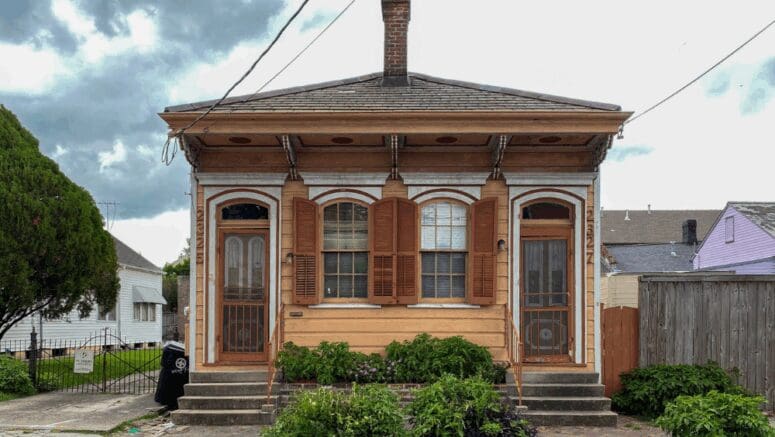What’s on the Louisiana Seller Disclosure Form?
- Published on
- 7 min read
-
Joseph Gordon EditorCloseJoseph Gordon Editor
Joseph Gordon is an Editor with HomeLight. He has several years of experience reporting on the commercial real estate and insurance industries.
You probably know your Louisiana home better than anyone, flaws and all. If you want to sell it, you may be wondering how much you need to reveal on the Louisiana seller disclosure form, officially known as the Property Disclosure Document.
This form gives potential buyers a better picture of your property’s condition and history so they can make a more informed decision, but it can also protect you.
In this post, we’ll tell you what to expect, how much detail to provide, and what could go wrong if you leave something out. We’ll also provide a downloadable Disclosure Litmus Test to help you identify any red flags.
What is the Louisiana seller disclosure form?
The Louisiana seller disclosure form, or Property Disclosure Document, is a 13-page document developed by the Louisiana Association of Realtors. It’s designed to help you disclose any known issues or facts about your home that could impact its value or a buyer’s decision to continue with the sale.
Louisiana law requires sellers to disclose all material facts — in other words, anything that could impact the buyer’s use or enjoyment of the property. The Property Disclosure Document form acts as a guide to help you do this thoroughly. It covers everything from structural issues and past repairs to neighborhood conditions and HOA rules.
Note: Even if you’re selling a home “as is” in Louisiana, you’re still required to be truthful and transparent about what you know.
What’s included in the Louisiana seller disclosure form?
Below is a section-by-section summary of what you’ll be asked to disclose when selling a home in Louisiana. Note that this is just an example of the kind of items you will see on seller disclosure format — the contents of your disclosure form may vary.
Land
Lot size, ownership length, and any servitudes or rights (access, mineral, drainage, or easements)
Whether the property includes or borders wetlands
Termites and pests
Any termite or pest activity, related damage, repairs, or active treatment contracts
Structure
Age of structures and roofs, additions or renovations, and any known defects in the foundation, walls, or roof
History of major property damage or foundation repairs
Use of synthetic stucco (EIFS) or presence of lead-based paint if built before 1978
Plumbing, water, gas, and sewage
Condition of plumbing, pipes, and water heaters
Water source (city, well, or shared system) and sewer type (public or private)
Gas service type and whether tanks are owned or leased
Electrical, HVAC, and appliances
Condition of wiring, heating, and cooling systems
Built-in appliances and fireplaces
Safety or tech features like alarms, smoke or CO detectors, solar panels, or generators
Flood history and insurance
Past flooding or drainage issues
Flood zone status and insurance requirements
Prior flood or disaster assistance claims, including Road Home grants
Other disclosures
Zoning, building restrictions, or HOA details
Property taxes, liens, or legal disputes
Pets or environmental concerns (mold, asbestos, radon, etc.)
Nearby injection wells or salt caverns
Download and print our Disclosure Litmus Test
Use this link to download a printable checklist (62KB) to prepare for completing the Louisiana seller disclosure form. The questions on this Seller Disclosure Litmus Test reflect the types of details and issues you may need to reveal about your home — and what buyers expect to know.
Check off anything that applies to your Louisiana property. If you’re unsure about something, make a note to ask your real estate agent or investigate further. The goal is to help you think through what needs to be documented and disclosed during the sale process.
What is not required to be disclosed? Louisiana law does not require you to disclose if someone died in the home, if a previous occupant had HIV or AIDS, or if a sex offender lives nearby. You’re also not obligated to disclose neighborhood rumors, paranormal activity, or personal reasons for selling, unless you are directly asked and your answer could be misleading.
Common mistakes sellers make on the disclosure form
Here are some of the most common missteps sellers make when filling out the Louisiana Property Disclosure Document:
- Checking “yes” without providing an explanation: If you check a yes box that includes an “Explain” line, not providing the details could stall your home sale.
- Guessing instead of explaining: If you’re not sure about something, don’t make assumptions — be upfront that you don’t know. It’s ok to be unsure; it’s not ok to knowingly lie.
- Failing to attach supporting documents: Inspection reports, permits, repair invoices, and warranties help verify your disclosures.
- Not disclosing repaired issues: Even if you’ve fixed a problem listed on the form, like a roof leak or plumbing issue, it still needs to be reported.
- Minimizing or softening the truth: Never downplay a defect or issue with your property. This can open you up to legal risk if the buyer later discovers the issue was worse than described.
What if you fail to disclose something important?
If you fail to disclose a known material fact about your Louisiana home, the buyer may have grounds to cancel the contract or sue you after the sale. In some cases, nondisclosure can be considered fraud under Louisiana law, particularly if the omission appears intentional. Being upfront now helps prevent bigger headaches later.
When and how buyers review the disclosure
Under Louisiana’s standard purchase contract, you’re expected to provide a completed Property Disclosure Document before or at the time the buyer makes an offer. The buyer then has a set review period, typically up to 72 hours after receipt, to examine the form and decide whether to proceed, request repairs, or cancel the deal. A transparent and honest disclosure can help keep your sale on track.
Partner with a top Louisiana agent to protect your sale
Disclosing your home’s condition is one of the most important — and legally sensitive — parts of the selling process in Louisiana. A top local agent can help you understand what’s required, avoid common pitfalls, and provide expert guidance so you can complete the Property Disclosure Document accurately and confidently.
Unsure where to start? HomeLight’s free Agent Match platform connects you with trusted real estate agents in your Louisiana market. We analyze over 27 million transactions and thousands of reviews to determine which agent is best for you based on your goals and selling timeline.
See the top real estate agents in 6 Louisiana markets:
- Top real estate agents in New Orleans
- Top real estate agents in Baton Rouge
- Top real estate agents in Shreveport
- Top real estate agents in Lafayette
- Top real estate agents in Lake Charles
- Top real estate agents in Kenner
If you’re buying and selling at the same time, check out HomeLight’s Buy Before You Sell program, which can streamline the entire process so you only move once. Watch this short video to see how it works.
Header Image Source: (Josh Doguet / Unsplash)

